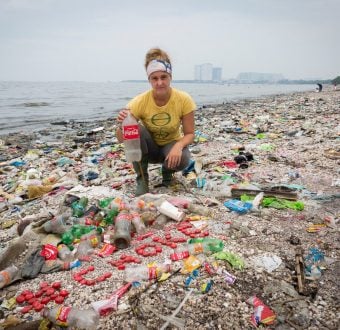Last week the city of Port Arthur, Texas was shaken by the Chevron Phillips Chemical plant blast that sent two injured workers into a medical helicopter. Although Chevron Phillips publicly claimed that the situation was under control, the workers at the plant and Port Arthur residents continue to deal with unknowns about the chemicals released into the air they breathe.
National refineries average 45 fires a year – nearly once a week. For the communities of Port Arthur this means a consistent assault on their health.
This Gulf Coast city is home to five refineries, six chemical plants, an incinerator, a Coca Cola plant and has been slated to be a destination for the Keystone pipeline. The unemployment rate for the area has consistently remained at 15.8 percent in comparison to the state average of six percent despite the growth of the petrochemical industry.
Take action now to prevent chemical disasters
There are huge social and economic disparities throughout communities like Port Arthur, which is characteristic of places along the Gulf Coast, where some of the countrys largest industrial source polluters are located. The community of Port Arthur includes an estimated 40 percent African Americans and 23 percent Latinos. The cancer mortality rate for the area is more than 25 percent higher than the state average. Its been reported that one in every five households in the area has a child suffering from chronic respiratory illness.
Earlier this month Texass Attorney General (AG) Greg Abbott, told reporters that Texans should be responsible for discovering what is in harms way. He helpfully suggested that they drive around looking for dangerous chemicals being stored and ask facility operators to disclose information about the hazards on site. Since the West, Texas fertilizer plant explosion Greg Abbott has received over $75,000 in campaign contributions from company heads at Koch Industries. Greg Abbott is one of the leading candidates running for governor and his campaign donors are very much representative of the chemical industrys interest.
Its the governments responsibility to protect citizens and hold industry accountable but the Texas AG thinks differently. We need to prevent these incidents instead of forcing communities to manage these types of disasters on top of the daily assault from toxic emissions.
This industry, very much like the chemical industry, is under regulated and operating under largely voluntary controls.
Since President Obama took office there have been 27 chemical disasters that have killed 75 people, according to a June 6threport by the Environmental Protection Agency, Occupational Safety and Health Administration, and Department of Homeland Security.
As we approach the one year anniversary of the Presidents Executive Order (#13650) to modernize chemical safety policies, such as ensuring that safer chemicals, processes and procedures are adopted for both chemical facilities and refineries across the country, we need these safeguards to go into effect before his term ends. President Obama must ensure that the EPA follows through on requiring that high risk facilities, like those in Port Arthur, eliminate their catastrophic risks. We want to see the EPA lead with prevention as it determines modernizing new regulations for chemical safety and security because communities and workers in Port Arthur, Texas have been under assault for decades from disasters that could have been prevented.


